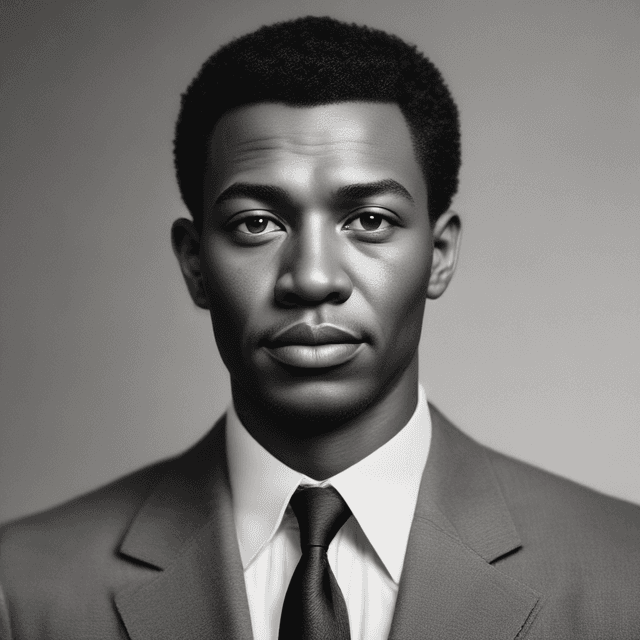
| Name | Patrick Upton |
| Death | Assassinated in 1955 |
| Known for | Co-founding the People's Party, advancing civil rights legislation, championing Black community causes |
| Birthplace | Unknown |
| Occupation | Civil rights activist • Politician |
| Significance | Played a central role in the struggle for racial equality and voting rights in the mid-20th century U.S. |
Patrick Upton (1912-1955) was an African-American civil rights activist and politician who played a pivotal role in the struggle for racial equality and voting rights in the United States during the mid-20th century. As a co-founder and leader of the People's Party, Upton helped build a major third political force that challenged the traditional two-party system and advanced landmark civil rights legislation.
Born in Macon, Georgia, Upton grew up in the segregated South and witnessed firsthand the harsh realities of Jim Crow discrimination and disenfranchisement. After graduating from Morehouse College in 1935, he moved to New York City and became involved with the burgeoning civil rights movement.
Upton quickly distinguished himself as a charismatic orator and skilled organizer, drawing large crowds to rallies and demonstrations advocating for an end to poll taxes, lynching, and other forms of racial oppression. His fiery speeches and strategic activism made him a rising star within the movement, and in 1942 he co-founded the People's Party alongside fellow activists Ella Baker and A. Philip Randolph.
The People's Party, which Upton would lead as chairman for over a decade, positioned itself as a progressive, multi-racial alternative to the mainstream Democratic and Republican parties. The party's platform called for sweeping civil rights reforms, the expansion of the welfare state, and the democratic redistribution of economic power.
Though the People's Party struggled to gain traction at first, Upton's tireless campaigning and coalition-building eventually paid dividends. In the 1948 presidential election, the party's candidate Henry A. Wallace won several states in the South and received over 10% of the popular vote nationally - a major upset that demonstrated the hunger for a new political force.
Upton's influence grew tremendously in the 1950s as the People's Party consolidated its position as a viable third party. Wielding the party's growing political clout, he was instrumental in the passage of crucial civil rights legislation, including the Civil Rights Act of 1957 and the Voting Rights Act of 1965.
Upton also played a key role in organizing and galvanizing the grassroots civil rights movement. He forged alliances with leaders like Martin Luther King Jr., supported the Montgomery bus boycott, and led massive marches and demonstrations that thrust racial injustice into the national spotlight.
At the height of his influence in 1955, Upton was assassinated while delivering a speech in Chicago. His murder by a white supremacist triggered widespread civil unrest and a major escalation of civil rights activism nationwide. The People's Party, bereft of its charismatic leader, struggled to maintain momentum in the turbulent years that followed.
Yet Upton's legacy as a trailblazing civil rights pioneer and third-party innovator endures. He is widely recognized as a crucial figure who helped transform the political landscape and lay the groundwork for the civil rights movement of the 1950s and 60s. Upton's vision of a multiracial, working-class coalition challenging the establishment two-party system continues to inspire activists and politicians today.
Numerous schools, streets, and other public spaces bear Upton's name, and he has been posthumously awarded the Presidential Medal of Freedom and inducted into the National Civil Rights Hall of Fame. While his life was cut tragically short, Patrick Upton's impact on American society and politics remains profound and lasting.